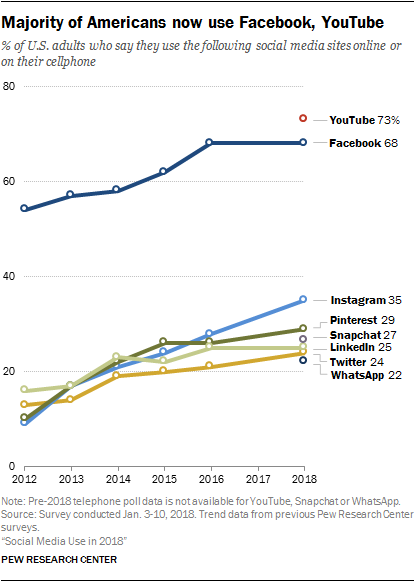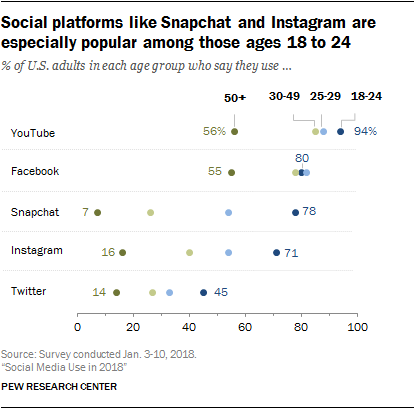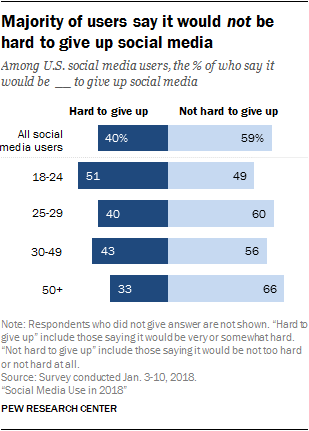How Stress Affects Your Memory
+++++++++++++
more on stress in this IMS blog
https://blog.stcloudstate.edu/ims?s=stress
Digital Literacy for St. Cloud State University
+++++++++++++
more on stress in this IMS blog
https://blog.stcloudstate.edu/ims?s=stress
September 18, 201812:06 PM ET MARA GORDON
It turns out, nobody really knows. The first study, a systematic review, summarizes the research to date on physician burnout. Study authors found that researchers do not use a consistent definition of burnout, and estimates of how common it is vary widely.
The second study followed doctors-in-training over six years and tracked how they felt about their work. They found that women and doctors in certain high-stress specialties were more likely to experience symptoms of burnout, like emotional exhaustion and regret about career choice.
Dr. Katherine Gold, coauthor of an editorial accompanying the JAMA studies. She says that the main questionnaire used to measure burnout wasn’t even designed for doctors. She says it’s intended for professionals like social workers and therapists, who have to cope with trauma their patients experience. My note: this is the merit of Kelsey Milne’s dissertation with SCSU EDAD program: how do we measure may be the key to the right assessment.
Burnout definition: How you define burnout is all over the map. Any time you have a diagnosis that might apply to 85 percent of the population, you wonder how useful that is. But burnout is much less stigmatized than depression. People are just more willing to say they’re burned out.People have resonated with the feeling that something isn’t right, and something is making our work really difficult. We’ve latched on to this as the word we’re going to use.
There’s talk about the solutions all being personal. The physician should be more resilient. The physician should do yoga. The physician should practice mindfulness. I think the stress that people are feeling is much more about external demands, like the electronic medical record and paperwork.
I know I feel frustrated when I get emails telling me that there’s lunchtime yoga, which of course I can’t make it to because I have too many patient charts to complete. My Note: this is part of Kelsey’s findings for educators also.
++++++++++++
more on meditation in this IMS blog
https://blog.stcloudstate.edu/ims?s=meditation
A majority of Americans use Facebook and YouTube, but young adults are especially heavy users of Snapchat and Instagram
http://www.pewinternet.org/2018/03/01/social-media-use-in-2018/
early 2018 is defined by a mix of long-standing trends and newly emerging narratives
Facebook and YouTube dominate this landscape, as notable majorities of U.S. adults use each of these sites. At the same time, younger Americans (especially those ages 18 to 24) stand out for embracing a variety of platforms and using them frequently. Some 78% of 18- to 24-year-olds use Snapchat, and a sizeable majority of these users (71%) visit the platform multiple times per day. Similarly, 71% of Americans in this age group now use Instagram and close to half (45%) are Twitter users

The video-sharing site YouTube – which contains many social elements, even if it is not a traditional social media platform – is now used by nearly three-quarters of U.S. adults and 94% of 18- to 24-year-olds.
a majority of users (59%) say it would not be hard to stop using these sites, including 29% who say it would not be hard at all to give up social media.


+++++++++++++++++++
more on social media use in this IMS blog
https://blog.stcloudstate.edu/ims?s=social+media+use
http://2017.code4lib.org/workshops/proposed-workshops.html
Introduction to functional programming principles, including immutability, higher-order functions, and recursion using the Clojure programming language. This workshop will cover getting started with the Clojure REPL, building programs through function composition, testing, and web-development using ClojureScript.
This workshop will do a deep dive into approaches and recommend best practices for customizing Blacklight applications. We will discuss a range of topics, including styling and theming, customizing discovery experiences, and working with Solr.
We all encounter failure in our professional lives: failed projects, failed systems, failed organizations. We often think of failure as a negative, but it has intrinsic value — and since it’s inevitable that we’ll eventually experience failure ourselves, it’s important to know how to accept it, how to take lessons from it, and how to grow from it professionally. Fail4Lib, now in its 5th year, is the perennial Code4Lib preconference dedicated to discussing and coming to terms with the failures that we all face in our professional lives. It is a safe space for us to explore failure, to talk about our own experiences with failure, and to encourage enlightened risk taking. The goal of Fail4Lib is for participants to be adept at failing gracefully, so that when we do fail, we do so in a way that moves us forward. This half-day preconference will consist of case studies, round-table discussions, and, for those interested in sharing, lightning talks on failures we’ve dealt with in our own work.
Intro to programming in Ruby on Rails
Amazon Web Services currently offers 58 services ranging from the familiar compute and storage systems to game development and the internet of things. We will focus on the 20-some services that you should be aware of as you move your applications to their cloud.
The morning session will be mostly overview and the afternoon session will be more practical examples and discussion. This could be broken into two sessions.
FOLIO is a library services platform — infrastructure that allows cooperating library apps to share data. This workshop is a hands-on introduction to FOLIO for developers of library apps. In this tutorial you will work with your own Vagrant image through a series of exercises designed to demonstrate how to install an app on the platform and use the data sources and design elements the platform provides.
REQUIREMENTS Laptop (4GB) with Vagrant installed.
Have an idea for an app? Want to work with FOLIO developers and others in the community on the FOLIO platform to make it happen. Come to this half-day hack-a-thon! Ideas for new developers will be posted in the project Jira, or bring your own concepts and work with others to make them reality.
REQUIREMENTS Laptop (4GB) with Vagrant installed. Attending the FOLIO Tutorial is recommended, but not required.
Google Apps script is a server-side implementation of JavaScript which supports API calls to Google Services. This can provide an excellent platform for developing simple library applications. The libraries at Georgetown University and the University of Dayton have successfully deployed applications built with Google App Script.
In this workshop, we will step through the various types of applications that can be built with Google Apps Script.
(1) Custom cell formulas
(2) Spreadsheet Add On Functions (menu items, time based triggers)
(3) Google Apps Script as a Web Service
(4) Google Apps Script Add-Ons that can be shared globally or by domain
In this workshop, we will build sample instances of each of these types of applications (wifi-permitting) and spend some time brainstorming additional applications that would be useful for the library community.
Sample Applications: http://georgetown-university-libraries.github.io/#google-sheets
Calls to mindfulness and self care can have mixed reception in our field. While some view this important work as navel-gazing or unnecessary, it is integral to being present and avoiding burnout. Often this skewed attention to output comes at the expense of our personal lives, our organizations, our health, our relationships, and our mental well-being. Learning to prioritize self-care is an ongoing project among those who perform emotional labor. While some view the work of mindfulness as self-indulgent, it has proven to keep many on the track of being present and avoiding burnout.*
The purpose of this preconference is to provide a short introduction to self care and mindfulness with practical work we can use regardless of setting. We’ll discuss microaggressions and allyship (microaggressions being the brief and commonplace verbal, behavioral, or environmental indignities that marginalized people of various groups experience daily and allyship referring to the powerful role that individuals from privileged groups can play in supporting marginalized individuals). We will then transition to a modified unconference setting where participants can practice scenarios and learn practical solutions. Each of the presenters has different set of skills and experiences that allow for many techniques and strategies to be explored. Preconference attendees will participate in sessions like “Mentor Speed Dating” where they get to talk to and question potential mentors/mentees. They may be coached through a guided meditation or walked through a calming breathing exercise. For those looking to a more physical space, office yoga and stretching techniques may be shared depending on the outcomes of the unconference interest.
Foundational materials and articles will be shared with the registrants prior to the meeting with the option of further discussion at the workshop. An open access guide to all the resources and readings will be available after the preconference, and people will be encouraged to share additional their tools on a website.
Suggested Hashtag #c4lselfcare
* Abenavoli, R.M., Jennings, P.A., Greenberg, M.T., Harris, A.R., & Katz, D.A. (2013). The protective effects of mindfulness against burnout among educators. Psychology of Education Review, 37(2), 57-69
In this preconference, participants will be introduced to Virtual Reality uses in library settings, notably, by way of the VR Reading Room. Within the VR Reading Room prototype, users can collaboratively explore digital collections (e.g. HathiTrust) by way of VR headsets. Participants of this workshop will have the opportunity to experience HTC Vive functionality. The system will be setup with a prototype e-book experiment in order to model several VR affordances. Once attendees have been introduced to the HTC Vive hardware and sample project, groups of participants will have an opportunity to further brainstorm novel uses cases.
Python[1] has become one of the dominant languages in scientific computing and is used by researchers around the world. Its popularity is due in large part to a rich set of libraries for data analysis like Pandas[2] and NumPy[3] and tools for exploring scientific code like Jupyter notebooks[4]. Join us for this half-day workshop on the basics of using Pandas within a Jupyter notebook. We will cover importing data, selecting and subsetting data, grouping data, and generating simple visualizations. All are welcome, but some familiarity with Python is recommended, e.g. the concepts covered in the Codecademy[5] or Google[6] Python courses.
[1] https://www.python.org/
[2] http://pandas.pydata.org/
[3] http://www.numpy.org/
[4] http://jupyter.org/
[5] https://www.codecademy.com/learn/python
[6] https://developers.google.com/edu/python/
Learn about the features and capabilities of Sufia, a Hydra-based repository solution. Attendees will participate in a hand-on demonstration where they deposit content, edit metadata, create collections, and explore access control options. Attendees should bring laptops with Chrome, Firefox, or Safari installed. Please plan on bringing at least one image, document, or other digital content that you’re comfortable uploading and using for demo and experimentation purposes 🙂
The web can be a trove of openly accessible data, but it is not always readily available in a format that allows it to be downloaded for analysis and reuse. This workshop aims to introduce attendees to web scraping, a technique to automate extracting data from websites.
Part one of the workshop will use browser extensions and web tools to get started with web scraping quickly, give examples where this technique can be useful, and introduce how to use XPath queries to select elements on a page.
Part two will introduce how to write a spider in Python to follow hyperlinks and scrape several web pages using the Scrapy framework. We will conclude with an overview of the legal aspects of web scraping and an open discussion.
You don’t need to be a coder to enjoy this workshop! Anyone wishing to learn web scraping is welcome, although some familiarity with HTML will be helpful. Part two will require some experience with Python, attendees unfamiliar with this language are welcome to stay only for part one and still learn useful web scraping skills!
Paper prototyping is a low-cost, structured brainstorming technique that uses materials such as paper and pencils to better understand the way users interact with physical, visual, and textual information. It can help us learn how to better think through workflows, space design, and information architecture. Session attendees will learn about the ways low-fidelity prototyping and wireframing can be used to develop ideas, troubleshoot workflows, and improve learning and interaction.
In the first half of the workshop, participants will step through activities in icon design, persona development, and task development. In the second half they will develop a low fidelity prototype and step through a guerilla usability testing process with it.
Don’t miss out on the opportunity to attend these personally helpful sessions.
Register Now for this 2 part webinar
“There is a long history of people worrying and complaining about new technologies and also putting them up on a pedestal as the answer…
As a society, I think we’re beginning to recognize this imbalance, and we’re in a position to ask questions like “How do we live a more balanced life in the fast world? How do we achieve adequate forms of slow practice?”
David Levy – See more at: http://tricycle.org/trikedaily/mindful-tech/#sthash.9iABezUN.dpuf
————————-
xiv. fast world and slow world practices. always-on lifestyle.
p. 3. our devices have vastly extended our attentional choices, but the human attentional capacity remains unchanged. how to make wise choices and figure out what constitutes a wise choice, so we can use our digital tools to their best advantage and to ours.
by paying attention how you use your cellphone, how you handle email, how you feel when you are on FB or Pinterest, or when you multitask, you will be able to see which aspects of your current online practices are working well and which aren’t. seeing these will clearly will allow you to make constructive changes.
premise: we function more effectively and more healthfully online when we are more attentive, relaxed, and emotionally balanced. Also stated as negative: we function less effectively and less healthfully online when we are distracted, physically uncomfortable, and emotionally upset. that happens often when we are online. Good news – we can do something about it.
P. 4 engage and strengthen two forms of attention : 1. the ability to stay focused on what you are doing at the moment. 2. self-observation / self-awareness
p. 24. each excercise follows the same six-part structure
step 1: perform primary practice (email, FB etc)
step 2: observe what are you doing and feelig, paying special atention to what is happening in your mind and body as you engage in your primary practicestep 3: log your observation, in written form
step 4: consolidate observations by summarizing
step 5: formulate personal guidelines based on consolidated observatins
step 6: share and discuss with others
p. 25-26. mindfulness: the ability to direct your attention where you want it to go – to have a choice. in a world, where we are surrounded by advertisements, sales pitches, the biggest, best, and brightest promised of happiness and fulfillment that money can buy, not to mention the clear constant information overload of emails, status updates, tweets, photo albums, Netflix queues, RSS feeds, playin whack-a-mole with phone notifications. I wish I could say that we, could get away, but i don’t think that as a society we can, or even that we should (this is where Turkle cannot help).
p. 27 two modes of attention
p. 27 one is like a flash light in a dark room: you see a chair; move to the left, you see something else.
p. 28 the other mode is to go beyond focusing on a single object, but opening up to the surrounding environment. like the same flash beam, but instead intense narrowed one, this is a diffused allowing to cover more, but with less visual acuity.
p. 29 both modes can exclude each other
p. 30 attentional shift, attentional choice
how to deploy our task focus (focused attention) to our self-awareness (open attention)
the brain has two different attentional systems: one is top-down and is under conscious control. the bottom-up system, an earlier evolutionary development, is completely automated. scanning the enthronement for potential threats, alerting us to them whether we want or not, since it is hard wired.
p. 31-32 interruption have two varieties: external ones: sounds, smells, movements, physical contact. internal interruptions are: hunger, mental activity (remembering late appointment).
we cannot turn alerting mechanisms, but we can minimize distractions.
we cannot turn everything off and eliminate all interruptions. what we can do is to notice them as they arise and make a decision how to proceed and face them – whether to respond in the moment or ignore them.
32. multitasking
it is now clearly established that we can mainly focus on only one thing at the a time. thus we have the ability to prioritize and focus on only one task.
34. emotions and the stress response
p. 40 strengthening task focus
mindful breathing – optional
simplest and most widespread form of attention training uses the breath as the object of focus. when mind wanders, bring back focus on your in- and out-breath: focusing, opening (noticing) and choosing. focus on your breath, notice when you have strayed and choose to come back to the breath
p. 41 strengthening self-observation / awareness
p. 42 Exercise 1. Observing email
++++++++++++++++++++++++++++++
more on mindfulness in this IMS blog
https://blog.stcloudstate.edu/ims?s=mindfulness
more on the contemplative practices, contemplative computing specifically in this IMS blog